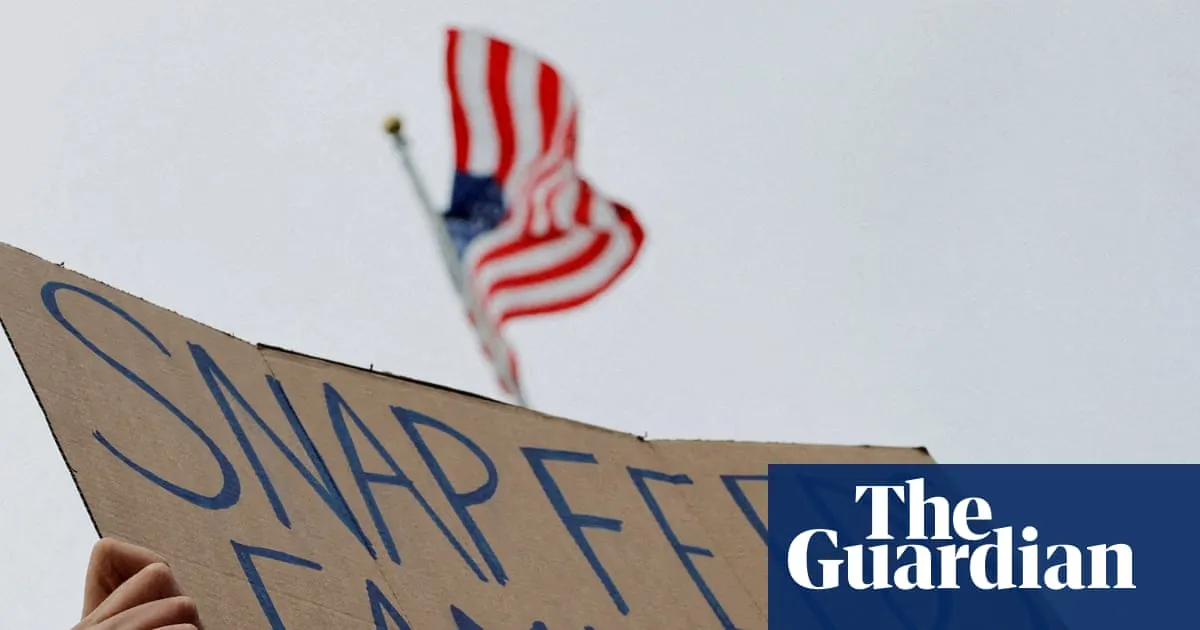
As the federal government shutdown continues, Americans who rely on government assistance to purchase groceries are bracing for dire consequences. For the first time in its over 60-year history, the Supplemental Nutrition Assistance Program (SNAP) faces the threat of benefit cuts, as former President Donald Trump has signaled intentions to reduce support. Although a federal judge recently intervened, preventing the complete suspension of SNAP by the US Department of Agriculture, enrollees are now informed that they will only receive half of their usual benefits.
The Guardian sought to highlight the significance of SNAP to the approximately 42 million people enrolled in the program. Many responses came from vulnerable populations, including the elderly and individuals unable to work due to serious mental or physical health conditions. Taras Stratelak, a retiree from southern California, expressed his concerns, saying, “I am housebound because I need a couple of spinal cord surgeries, so this is really gonna hurt me because I cannot work and thereby earn money to put food on the table.” Stratelak also referred to the rhetoric from Trump and the GOP regarding the downsizing of federal aid programs, stating, “I guess I’m lazy, or maybe I’m waste, fraud, and abuse.”
Betty Standridge, a 56-year-old resident of Wisconsin, shared her experience of relying on SNAP after being hospitalized for a month. She stated, “Losing my SNAP benefits means I will not be able to replenish my food for the month, therefore I will do without things like fresh produce, milk, and eggs.”
Donna Lynn, a disabled veteran from Missouri, articulated the tough decisions that benefit cuts would force her to make: “It comes down to paying for my medications and my bills or buying food for myself and my animals. So I pay for my medications and bills and get what food I can for my animals, and if I have money left over, then I will eat.” Lynn lamented how the government treats veterans, remarking, “It's very sad.”
In Charleston, West Virginia, 36-year-old Zachariah Kushner succinctly expressed the harsh reality of benefit cuts: “I won’t be able to buy food! What do you expect?”
The government shutdown commenced on October 1, as Congress failed to reach an agreement on spending legislation. The GOP is pushing for a bill to fund the government through November 21, while Senate Democrats have refused to support the legislation unless President Trump extends tax cuts that have lowered monthly premiums for Affordable Care Act plans. The USDA claims it must cut off SNAP due to a lack of funds, but experts have contested this assertion, and a federal judge recently ruled in favor of two dozen states seeking to maintain funding.
A recent NBC News poll revealed that 52% of respondents blame Trump and his allies for the shutdown, compared to 42% who point fingers at the Democrats. Many individuals who shared their stories with The Guardian echoed this sentiment. Sandra, a retiree in Milwaukee, expressed her fear that the benefit cut could be the beginning of an effort to dismantle SNAP, established by Congress in 1964. “My sense is Trump will try to make SNAP benefits permanently end during the shutdown,” she said. “I’m dumbfounded by the cruelty.”
Steven, a 59-year-old from Wisconsin recovering from surgeries, shared how he has already reduced his food intake: “Now it means no milk, no eggs, no vegetables, and definitely no meat.” He likened his experience to the “siege of Stalingrad, but from your own government.”
Thomas, a 28-year-old unemployed resident of Philadelphia, echoed feelings of betrayal, stating, “I’ve paid an awful lot of taxes over the years; I don’t feel bad about getting something back for it in my time of need.”
Bill, a resident of Grand Rapids, Michigan, predicted he will “have to go without many things that I ordinarily purchase” and may need to borrow money from family members to make ends meet.
As the government shutdown continues, the uncertainty surrounding SNAP benefits remains a pressing concern for millions of Americans. With personal stories underscoring the critical role of this program in supporting vulnerable populations, the ongoing political stalemate raises questions about the future of food assistance in the United States. The ramifications of potential benefit cuts could have devastating effects on those who rely on SNAP for their basic nutritional needs.